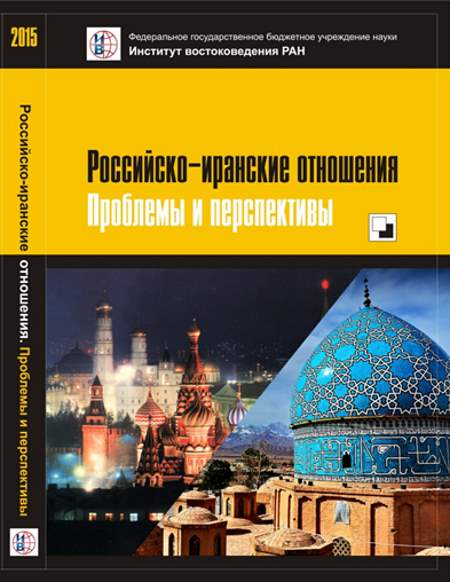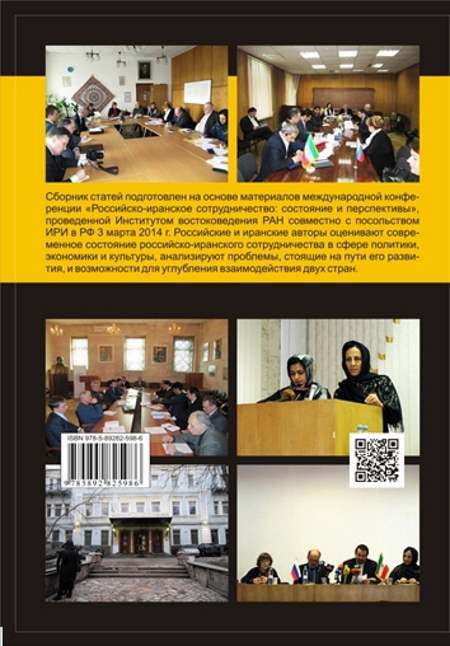Книга
 Российско-иранские отношения. Проблемы и перспективы
Российско-иранские отношения. Проблемы и перспективы
 Российско-иранские отношения. Проблемы и перспективы
Российско-иранские отношения. Проблемы и перспективы

Ответственный редактор: Дунаева Елена Викторовна
Составитель: Сажин Владимир Игоревич
Москва, 2015, 260 стр.
Сборник статей подготовлен на основе материалов международной конференции «Российско-иранское сотрудничество: состояние и перспективы», проведенной Институтом востоковедения РАН совместно с посольством ИРИ в РФ 3 марта 2014 г. Российские и иранские авторы оценивают современное состояние российско-иранского сотрудничества в сфере политики, экономики и культуры, анализируют проблемы, стоящие на пути его развития, и возможности для углубления взаимодействия двух стран.
Книга адресована востоковедам, политологам, экспертам практических организаций, студентам, а также всем, интересующимся международными связями РФ со странами Ближнего и Среднего Востока и проблематикой ИРИ.
English version
On March, 3, 2014 the Institute of Oriental Studies, Russian Academy of Sciences and the Embassy of the Islamic Republic of Iran held an international conference “Russo-Iranian Relations: Current State and Opportunities”. Russian and Iranian scholars and the representatives of some state organizations and non-governmental foundations discussed different issues concerning political, economic and cultural aspects of the two countries’ interaction in the last years. They strove to shed light on the question: “To what extent and in what areas do the interests of Russia and Iran coincide, and what is the foundation for their potential future development?” The materials presented at the conference form the basis of this publication. The authors in their articles stress, that the relationship of the two countries is complex and has deeper roots. In the 1990s the two states successfully laid the foundations for interaction and significantly expanded their spheres of cooperation. Their concurring positions and interests over a wide range of global and regional problems facilitated this progress. Although relations developed unevenly, both governments remained aware of the importance of their partnership and the political establishments of both countries continue to demonstrate an interest in developing bilateral relations and to reaffirm their shared geopolitical interests. In its relations with IRI, Russia prioritizes shared threats, common geopolitical interests, and economic advantages. Articles of this collection reflect various views of the scholars on the problems of strategic partnership between RF and IRI. Some points of view of the authors are not shared by editors but they give the opportunity to represent a great variety of opinions on Russo-Iranian relations. The authors did not manage to cover all the aspects of the two countries interaction but in spite of this the presented collection of articles will be useful for scientific and official circles, students, and for all whose who are interested in the Russian policy in the Middle East, and a range of problems in IRI.




